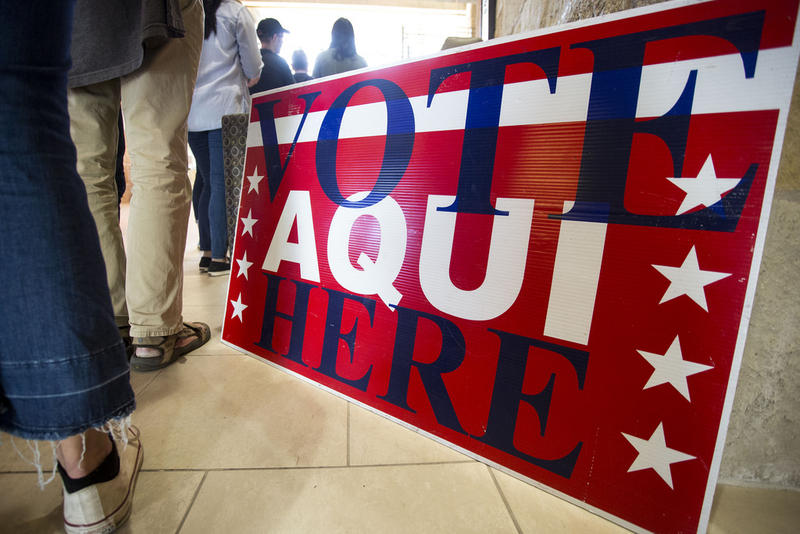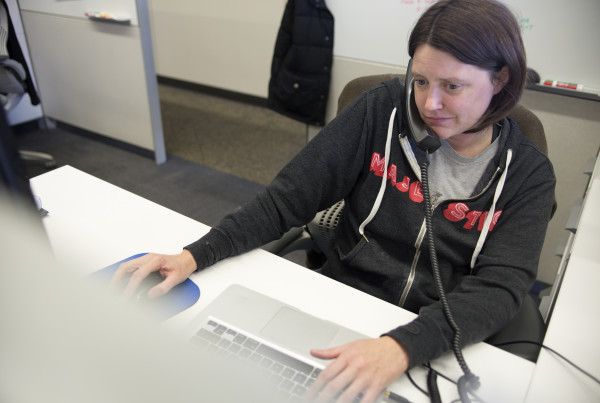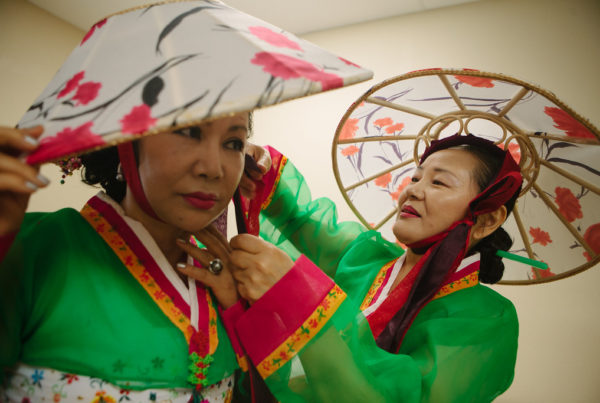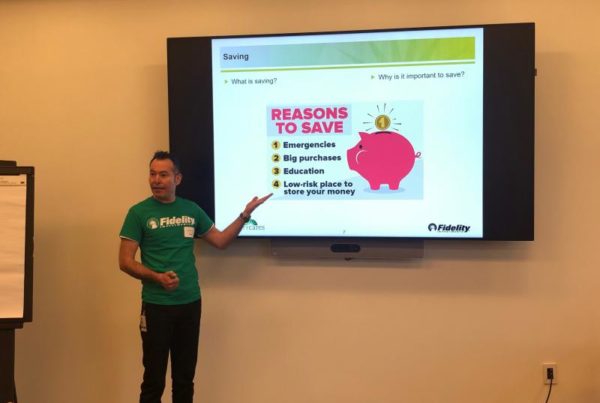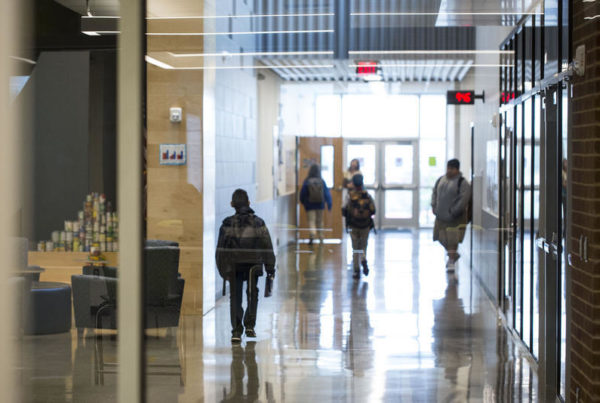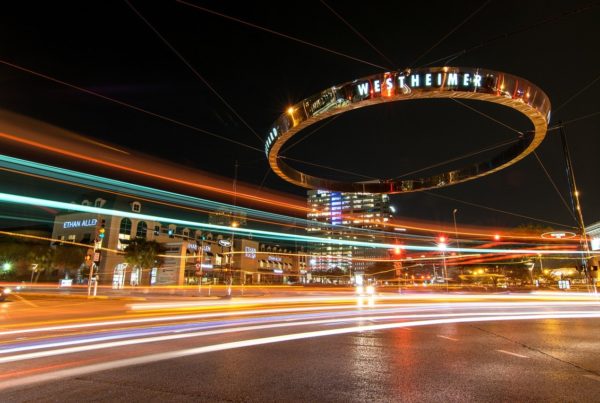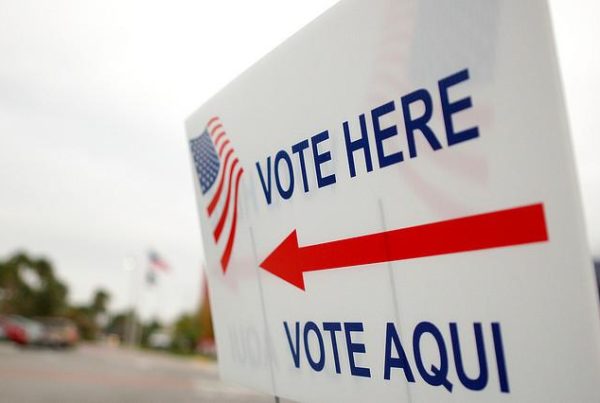This week, Texas Standard has been considering some of the substantive issues voters in Texas have on their minds as they cast their ballots in 2020. When it comes to immigration policy, there have been many changes since 2016. The question is, how will the issue factor into the primaries and the general election in November?
Victoria DeFrancesco Soto is the assistant dean for civic engagement and a lecturer at the University of Texas at Austin’s LBJ School of Public Affairs. She says immigration rules, including many that affect asylum-seekers and would-be refugees, have changed dramatically during the Trump administration. Trump has also made progress in constructing his border wall.
“We’ve seen immigration changes in all shapes and sizes, from changes in terms of who can receive benefits [and] others who are permanent residents here – green card holders – to the changes we saw a couple of summers ago where we were separating families,” DeFrancesco Soto says.
Though immigration has not been a major topic during the Democratic presidential debates, the issue is very important to those in what DeFrancesco Soto calls “the immigration community.” But she says immigrants and those who are affected by border policies also care about issues like health care, education and income inequality, all of which have been discussed in the debates and are issues that impact everyone, not just immigrants.
“Immigration by itself … really tends to fade back to the issues that really affect us day to day,” DeFrancesco Soto says.
Among Democrats seeking the presidential nomination, DeFrancesco Soto says only Minnesota Sen. Amy Klobuchar hasn’t taken a “proactive” stance on immigration policy, even though she did work for comprehensive immigration reform as a senator. The other candidates remaining in the race have all taken stands in opposition to Trump’s policies, including family separation and restrictions on asylum-seekers.
A candidate’s progressive immigration policy is often seen as a stand-in for Latino outreach. But DeFrancesco Soto says the Latino community is so diverse that one is not a replacement for the other.
“You have folks who crossed the border and are immigrants from a week ago,” she says. “Then you have folks who, the border crossed them, or their ancestors have been here for eight generations.”
Those with Latin American ancestry but with deeper roots in the U.S. often feel differently about immigration than those with more recent ties to Mexico or Central America. Still, DeFrancesco Soto says the way some politicians talk about immigration, including expressing anger toward those who are undocumented, can energize many who otherwise wouldn’t engage on the issue.
DeFrancesco Soto expects the issue of immigration to “flare back up” as the presidential campaign continues. Strong statements about immigration play well to the President Trump’s base of supporters, she says.
Written by Shelly Brisbin.


